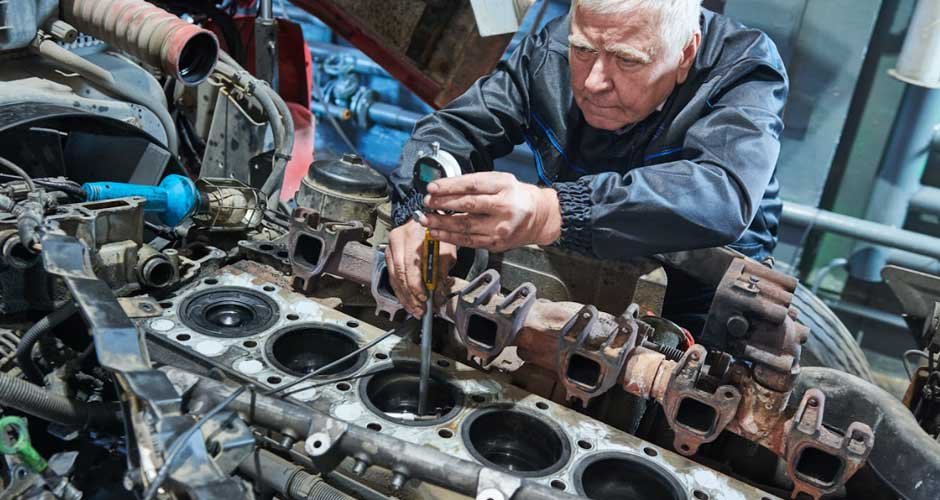Car sensors are vital parts of your vehicle. They act as the eyes and ears of your car, giving you essential information that can help you stay safe while driving. Ideally, sensors monitor your vehicle’s situation and send you signals when you need to make changes. Sometimes, they spontaneously make changes to your engine. These devices control various aspects of your car, including the coolant system, temperature, emission levels, pressure, etc.
When a problem arises, car sensors identify it and send a message to the electronic control system (ECS). The ECS has algorithms that enable it to inform the driver using an audio alarm or flickering lights on the screen or dashboard. With that in mind, here’s a quick guide to car engine sensors.
Types Of Car Engine Sensors
Below are the various types of car engine sensors:
- Differential Pressure Sensor
The primary function of a differential pressure sensor (DPS) is to check the operation of a diesel particulate filter (DPF). This sensor calculates your car’s DPF exhaust gas pressure upstream and downstream. By checking the pressure difference in these two positions, you can determine the saturation level of the DPF. Additionally, the ECU utilizes the data to decide when to infuse diesel exhaust fluid (DEF) for reproduction.
Sometimes, the DPS may fail due to contamination, clogging, or impaired electronics due to extreme engine heat. When this happens, the engine may start poorly or not at all, detonation may occur, and the check engine light can be on. If your sensor malfunctions, consider replacing it with a Paccar Differential Pressure Sensor and optimize the functioning of your vehicle.
- Coolant Temperature Sensors
Another significant type of sensor is the coolant temperature sensor (CTS). The primary role of this sensor is to monitor the temperature of your vehicle’s engine coolant. When temperatures exceed the optimum level, this sensor sends a message to the ECU, which cools your engine. Some cooling components of a car are fans, thermostats, overflow tanks, exhaust, and hoses.
If your CTS malfunctions, your engine may overheat, resulting in long-lasting adverse damages. In some modern car models, the CTS shuts down the engine whenever the temperature rises above the optimal level.
- Engine Speed Sensor
The engine speed sensor is linked to the crankshaft. Its primary role is to supervise the rotating speed of the crankshaft to enable proper control of fuel injection and engine timing. Therefore, if this sensor malfunctions, it can lead to issues with the speedometer or the cruise control. One sign of a faulty engine speed sensor is the transmission revs rising before changing gears. Additionally, brakes may be harder than usual when coasting, and the speedometer may only partially work.

- Mass Airflow Sensor
A mass airflow sensor (MAF) measures the mass flow of air into the engine. It’s located in the combustion chamber and ensures the correct air-fuel mixture infiltrates the internal combustion engine. The engine control unit (ECU) uses airflow measurement to balance air and fuel. If your MAF is faulty, your car won’t work. Therefore, ensure to check and properly maintain it.
Some signs of a malfunctioning MAF are high fuel consumption, check engine popping up, and your car stalling or completely stopping.
- Knock Sensor
A knock or an engine ping or detonation is a sound and reaction that happens when a second unexpected ignition or explosion in a cylinder occurs. This ignition is different from the usual one from a spark plug. Generally, a knock can occur due to inaccurate air and fuel mixture, poor timing, or a dirty cylinder, resulting in severe damage that can lead to costly repairs.
Fortunately, a knock sensor identifies detonation and preignition that can result in unusual combustion. This sensor is inclined in the exterior of the engine block and is sometimes located below the intake manifold. It collects vibrations and sounds from the engine block and converts them into an electronic signal. Then it sends the signal to the ECU. Your vehicle’s computer then utilizes the data to determine whether you should alter the ignition timing.
Benefits Of Car Engine Sensors
Below are some advantages of car engine sensors:
- Improving fuel efficiency: Sensors regularly monitor and adjust engine parameters, like spark timing and air-fuel ratios, to enhance fuel consumption.
- Optimizing performance: Engine sensors provide the ECU with data to improve fuel injection, ignition, and valve timing. This optimizes your car’s overall performance.
- Controlling emissions: Car sensors track the levels of toxic emissions and identify if they’re within tolerable limits. If any emission-related issues occur, they alert you, and you can correct them.
- Analyzing your car: Sensors diagnose your vehicle for malfunctions before they become significant issues. This way, you can make the appropriate corrections on time and avoid costly repairs.
- Enhancing safety: Engine sensors play a significant role in promoting your safety, passengers, and pedestrians. Tire pressure and blind spot detection sensors allow cars to react swiftly to anticipated dangers and take preventive actions, avoiding accidents.
Sensors offer numerous benefits to your car’s effectiveness. Therefore, regular car engine maintenance is necessary to keep all sensors working correctly.
Conclusion
Car engine sensors ensure that your vehicle performs at its best. They monitor various aspects and give you signals whenever they identify an issue. If one sensor fails, your car may misbehave and can even result in an accident. Therefore, if you spot any sensor problems, take timely corrective actions. However, if the issue is severe, replace the malfunctioning sensors from reputable companies.






